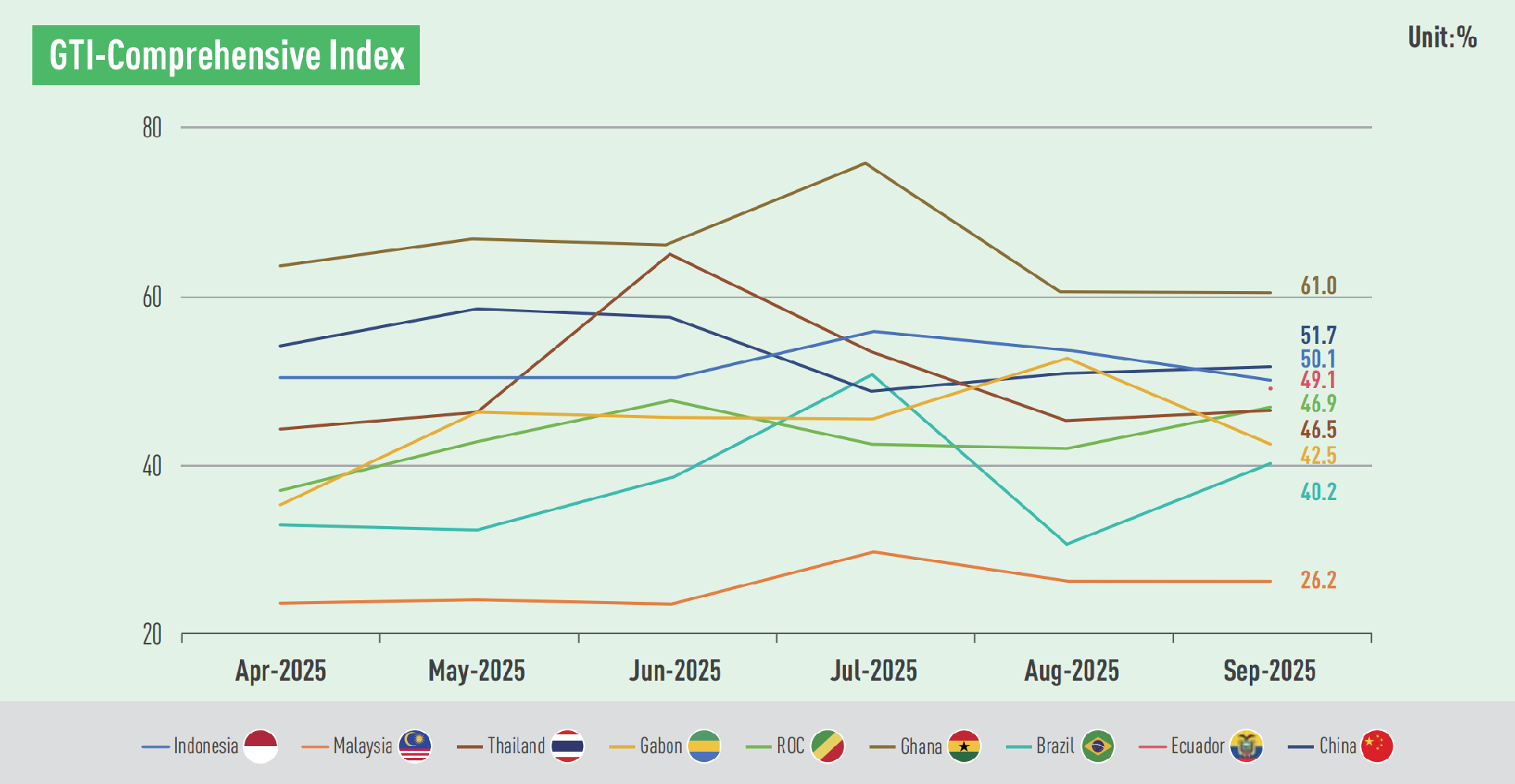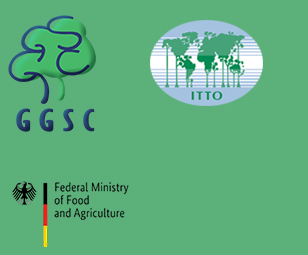

The Global Timber Index (GTI) Report for September 2025 revealed that some countries, even in contraction territory, exhibited positive signs of partial improvements, while some other countries had remained in expansion territory for several consecutive months, suggesting steady growth in overall performance. The GTIs for Ghana (61.0%), China (51.7%), and Indonesia (50.1%) were all above the 50% critical value. Notably, Ghana remained in expansion territory for the ninth consecutive month, and China almost sustained an upward trend over the past six months (slight contraction in July only).
Ecuador, with sample enterprises beginning to submit production and operation data this month, recorded a reading of 49.1%. The readings for the Republic of the Congo (46.9%), Thailand (46.5%), Gabon (42.5%), Brazil (40.2%), and Malaysia (26.2%) were also below the 50% critical value, however, the contraction had eased in most of the countries.
GTI sub-indices revealed that Indonesia, Malaysia, Ghana and Ecuador saw an increase in their respective volume of harvesting, which may help ease the shortage of logs. Meanwhile, China maintained growth in production for the seventh consecutive month. On the demand side, several markets also showed growth, particularly the domestic market in Indonesia and the export market of Thailand.
On 29 September, U.S. President Trump announced 10% tariffs on imports of softwood timber and lumber, as well as 25% levies on kitchen cabinets, bathroom vanities and upholstered wooden furniture, with further increases set to take effect on 1 January next year. The levies are expected to impact timber markets in many regions, driving the timber sector to explore market diversification. For example, in Brazil, the states of Paraná and Santa Catarina, heavily reliant on U.S. exports, are the most affected, and there are growing calls among businesses to develop new markets. Also, with the newly signed Indonesia–EU Comprehensive Economic Partnership Agreement (IEU-CEPA), Indonesia is expanding its presence in the EU market to boost exports of furniture and other products. And in Gabon, some enterprises are calling for stronger intra-African trade. Nevertheless, in Thailand, some timber enterprises are calling on domestic businesses not to withdraw from the U.S. market, but to enhance their competitiveness there.
In terms of sustainable forest management, on 23 September, Brazilian President Lula announced a US$1 billion investment in the Tropical Forest Forever Facility (TFFF), making it the first country to commit to investing US$1 billion in the fund. And it was reported that China, Norway, the UK, the United Arab Emirates, among other countries, also intended to make initial contributions. In other news, data from the Malaysian Timber Certification Council (MTCC) revealed that as of 30 September 2025, a total of 5.92 million hectares of forests in Malaysia had been certified under the MTCS-PEFC scheme, covering 26 certified natural forests and 10 certified forest plantations. The data also indicated that 387 companies had obtained the MTCS-PEFC Chain of Custody certification.

| E-mail:ggsc@itto-ggsc.org | Tel:86-10-62888626 |


Sigh Up for Emails |
|